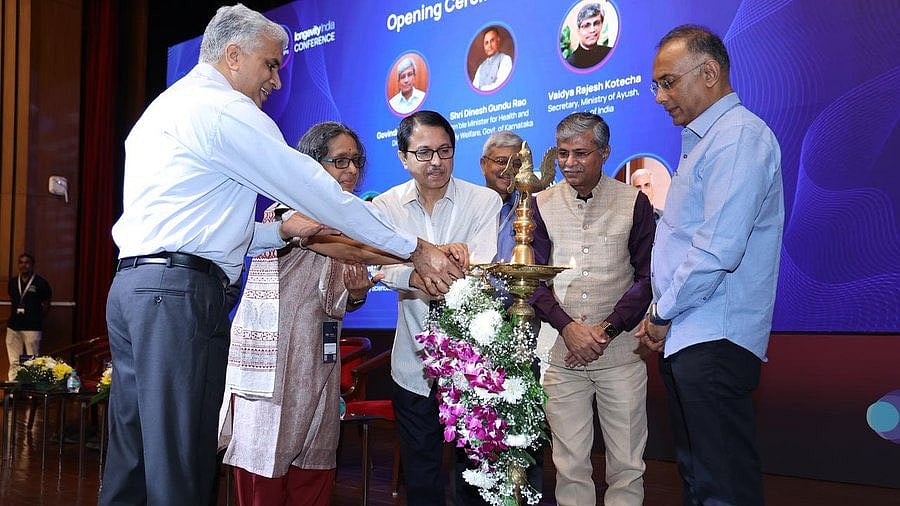
Longevity India Conference organised by Indian Institute of Science.
Credit: X/@dineshgrao
Bengaluru: Director of IISc Govindan Rangarajan announced that the Indian Council of Medical Research (ICMR) has lent its support to the Longevity India Initiative at IISc to establish a Centre for Advanced Research in Aging. He said this while speaking at the inaugural ceremony of a three-day 'Longevity India Conference 2025.'
The Centre for Advanced Research in Aging will explore India-specific biomarkers, create organ-specific aging models, and study the gut-brain connection, in order to develop strategies for healthy aging through biology, data science, and clinical research.
Scientists, researchers, and industry leaders gathered at the three-day conference at the Indian Institute of Science (IISc) in Bengaluru to discuss ageing from the macro to the micro level.
With the key theme as 'Biological Foundations and Mechanisms of Aging', the conference highlighted notable developments and trends through four major sessions covering aging research, biological mechanisms, lifestyle medicine, and holistic health approaches.
Minister for Health and Family Welfare Dinesh Gundu Rao, Manjunath Bhandary, MLC, Government of Karnataka and Govindan Rangarajan were among the key dignitaries who addressed the inaugural session held on Monday.
Gundu Rao in his address said, "Longevity is not just about living longer, but living healthier, contributing, and staying active. With good habits and advancements in medical science, one can remain active and engage throughout their life."
In his keynote address titled, 'Molecules to Systems Convenor of Longevity India', Deepak Saini explained the ageing process at a micro level, pointing out that ageing occurs when there is damage to the DNA. "A damaged cell doesn't do anything. It doesn't die or multiply and releases inflammatory chemicals, which results in systemic ageing," he added.
Saini explained that when we are young, the immune system can clear damaged cells but as we grow old there are too many damaged cells to for the immune system to clear.
Director of Centre for Healthy Longevity at National University of Singapore Brian Kennedy in his keynote address explained that resilience is a big marker for ageing. "In the context of health resilience refers to the ability to adapt, recover, and maintain mental and physical strength in the face of adversity," he added.
